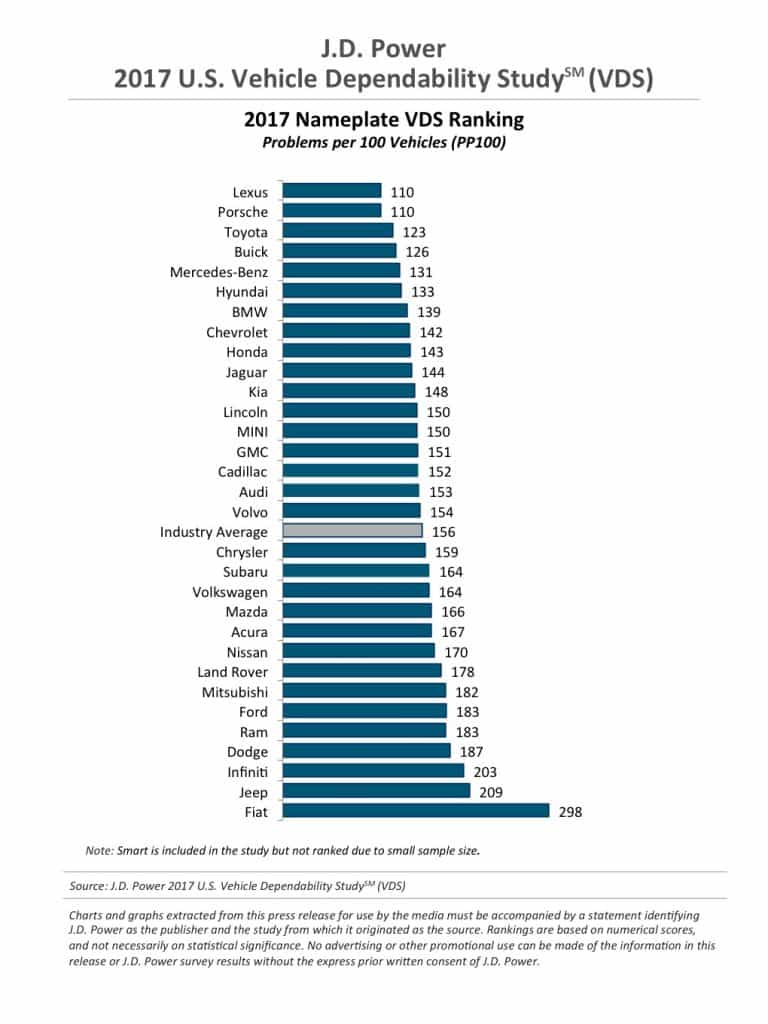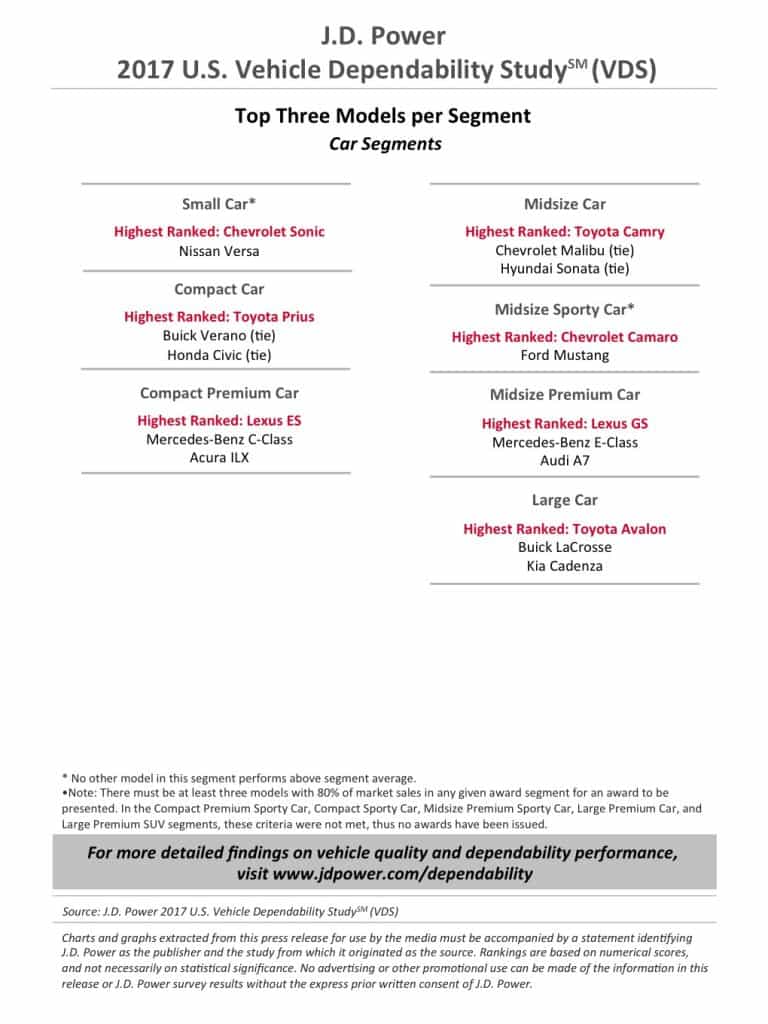 According to the J.D. Power 2017 Vehicle Dependability Study, Lexus and Porsche remain at the top for long term quality based on 2014 models. Dependability influences car buying decisions. Technology problems can bring down the value of cars considerably. Audio/Communication/Entertainment/Navigation (ACEN) category is to be the most problematic area technology are with accounting for 22% of all problems reported. Bluetooth problem are most aggravating problem for car owners and the most reported.
According to the J.D. Power 2017 Vehicle Dependability Study, Lexus and Porsche remain at the top for long term quality based on 2014 models. Dependability influences car buying decisions. Technology problems can bring down the value of cars considerably. Audio/Communication/Entertainment/Navigation (ACEN) category is to be the most problematic area technology are with accounting for 22% of all problems reported. Bluetooth problem are most aggravating problem for car owners and the most reported.
J.D. Power finds that in addition to impacting purchase decisions and brand loyalty, better long-term quality is a key factor in contributing to higher residual values for vehicles. For example, J.D. Power estimates that Toyota—the highest-ranked non-premium brand in the study—has a residual values benefit of more than $750 per vehicle, compared with the average brand. This translates into a benefit of more than $1.3 billion for the 2014 model year alone.
Highest-Ranked Nameplates and Models
Lexus and Porsche tie to rank highest in vehicle dependability among all nameplates, with a score of 110 PP100. This is the sixth consecutive year of Lexus topping the nameplate rankings in the VDS.
- Toyota (123 PP100) follows in the rankings, moving up one rank position from 2016.
- Following Toyota in the rankings are Buick (126 PP100) and Mercedes-Benz (131 PP100).
- Hyundai (133 PP100) is the most improved nameplate in the study, improving by 25 PP100 from 2016. At sixth position (up from 19th in 2016), this is Hyundai’s best-ever ranking in the VDS.
- Other notable improvements include Dodge and Ford, which both improve by 21 PP100 from 2016, and Land Rover, which improves by 20 PP100.
Toyota Motor Corporation models receive 10 of the 18 segment awards, representing the highest number of awards ever received by an individual corporation in the study. These awardees are Lexus ES; Lexus GS; Lexus RX; Toyota Avalon; Toyota Camry; Toyota FJ Cruiser; Toyota Prius; Toyota Prius v; Toyota Sienna; and Toyota Venza. The Toyota Camry has the lowest PP100 score industry-wide.
General Motors models receive four segment awards for the Chevrolet Camaro; Chevrolet Sonic; Chevrolet Silverado HD; and Chevrolet Tahoe.
Other models receiving segment awards in the study are the Ford F-150; Honda Ridgeline; Mercedes-Benz GLK-Class; and Volkswagen Tiguan.
- Continuing increases in technology-related problems have contributed to dependability worsening in the industry for a second consecutive year. The industry average of 156 PP100 is a 4 PP100 increase from 2016.
- The Audio/Communication/Entertainment/Navigation (ACEN) category continues to be the most problematic area, accounting for 22% of all problems reported—up from 20% last year.
- For a third consecutive year, the problems most reported by owners are Bluetooth pairing/connectivity and built-in voice recognition misinterpreting commands.
- New to the top 10 list of problems reported in 2017 is battery failure. In fact, 44% more owners report a battery failure this year than in 2016. Batteries are the most frequently replaced component not related to normal wear and tear in 3-year-old vehicles at 6.1%—up 1.3 percentage points from 2016.
The 2017 U.S. Vehicle Dependability Study is based on responses from 35,186 original owners of 2014 model-year vehicles after three years of ownership. The study was fielded from October through December 2016.

Q. What makes a vibrating sound of my 2014 Camry when I roll my back glass down?